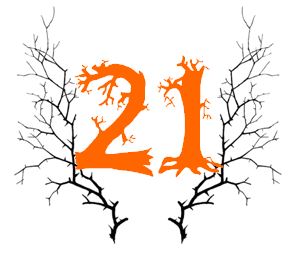 “There are two sorts of romantic: those who love, and those who love the adventure of loving”.
“There are two sorts of romantic: those who love, and those who love the adventure of loving”.
Many years ago now (rather more than I care to think about) I taught in a primary school in Kuwait. It was my first job after university, and I was desperate to travel and learn more about the world at first hand, rather than through the pages of a book. I spent a few weeks circling adverts in the back of the Times Educational Supplement for teaching positions in far-flung places – and through a combination of impatience and impulsiveness, ended up in Kuwait City. I spent two happy, chaotic, exciting years seeing far more of life than England had ever prepared me for, and learning about the huge cultural differences between the West and the East. About teaching, I learned much less – only that school began at 7am, ended at 2pm, and I was required to do very little in the intervening hours (it was this that hastened my return to the UK, as I realised that I would need to make a living teaching for the next few decades, and this possibly wasn’t preparing me very well for it).
When I read about the forthcoming biography of Lesley Blanch, I knew I had found a kindred spirit. Blanch was a writer and artist, a traveller and an historian, but she was primarily a romantic. Her best-known book, The Wilder Shores of Love, tells the story of women (Isabel Burton, Jane Digby el-Mezrab, Aimee du Buc de Rivery and Isabelle Eberhardt) who ‘dared to turn to the East for adventure and love’, ‘escaping the boredom of convention’. A friend of Lee Miller, Nancy Mitford and Rebecca West, Blanch was one of the last in the great English tradition of glamorous, imposing, well-travelled beauties, whose life stories would put our own arid tales to shame.
Of her upbringing, she said “My mother would read The Koran for breakfast in bed which she found very stimulating. My father would read Daniel Defoe’s Journal of the Plague Year because he said the descriptions were so ghastly it made daily life seem so much more agreeable. I would be in my room getting ready for school and reading Carlyle’s History of the French Revolution; I had a thing about tumbrels and all that.”
Her love of travelling was sparked by her wide-ranging reading, and a mysterious family friend (later to become her lover) she knew as ‘The Traveller’ – her fascinating website tells the story of how he “occasionally blew into her nursery, muffled in heavy furs and bearing gifts of Fabergé eggs and icons. Full of the fairytales of Russia, ‘He looked like Nureyev with slanting eyes.’ When he swept out of her life, he left her in the grips of a lifelong obsession.” She wrote twelve books on a huge range of subjects, including a marvellously eccentric cookbook ‘that reads more like Tintin than Elizabeth David’ according to The Guardian and a biography of Imam Shamyl, as well as The Wilder Shores of Love. The quote at the beginning of this post is taken from this book, which Blanch says she was inspired to write by “seeing young Englishwomen spoiling their lives tapping away at typewriters, and then watching them trudge home over Waterloo Bridge. I wondered how different their lives would have been if they’d managed to get away.”
 image of Lesley Blanch courtesy of The Guardian
image of Lesley Blanch courtesy of The Guardian
Blanch died in 2007, age 102. Her obituary in The Guardian is a window onto an England that’s fading like an old photograph, the post-war life of debutantes and bohemians, of minor royalty and millionaires, of diplomats and debauched dinner parties.
“I was always very aware of other horizons,” she once said. At Christmas, when we begin to reflect on the year just passed and consider the potential of the year ahead, this is a wonderful thought to have in mind.
 The Ghostly Advent Calendar: 13th December – Aidan Chambers’ Great Ghosts of the World
The Ghostly Advent Calendar: 13th December – Aidan Chambers’ Great Ghosts of the World  The Ghostly Advent Calendar: 12th December – Denys Fisher’s Haunted House
The Ghostly Advent Calendar: 12th December – Denys Fisher’s Haunted House  Ghostly Gentlewomen – Sarah Rayne
Ghostly Gentlewomen – Sarah Rayne  Ghosts at the Feast – the contrasts of revelry and solitude at Christmas
Ghosts at the Feast – the contrasts of revelry and solitude at Christmas
Leave a comment